Why hundreds of Africans want to fight for Ukraine’s foreign legion
Hundreds of people across Africa have expressed an interest in joining the war – many motivated by the idea of migrating to Europe – but various obstacles stand in their way, Portia Crowe and Azil Momar Lô report

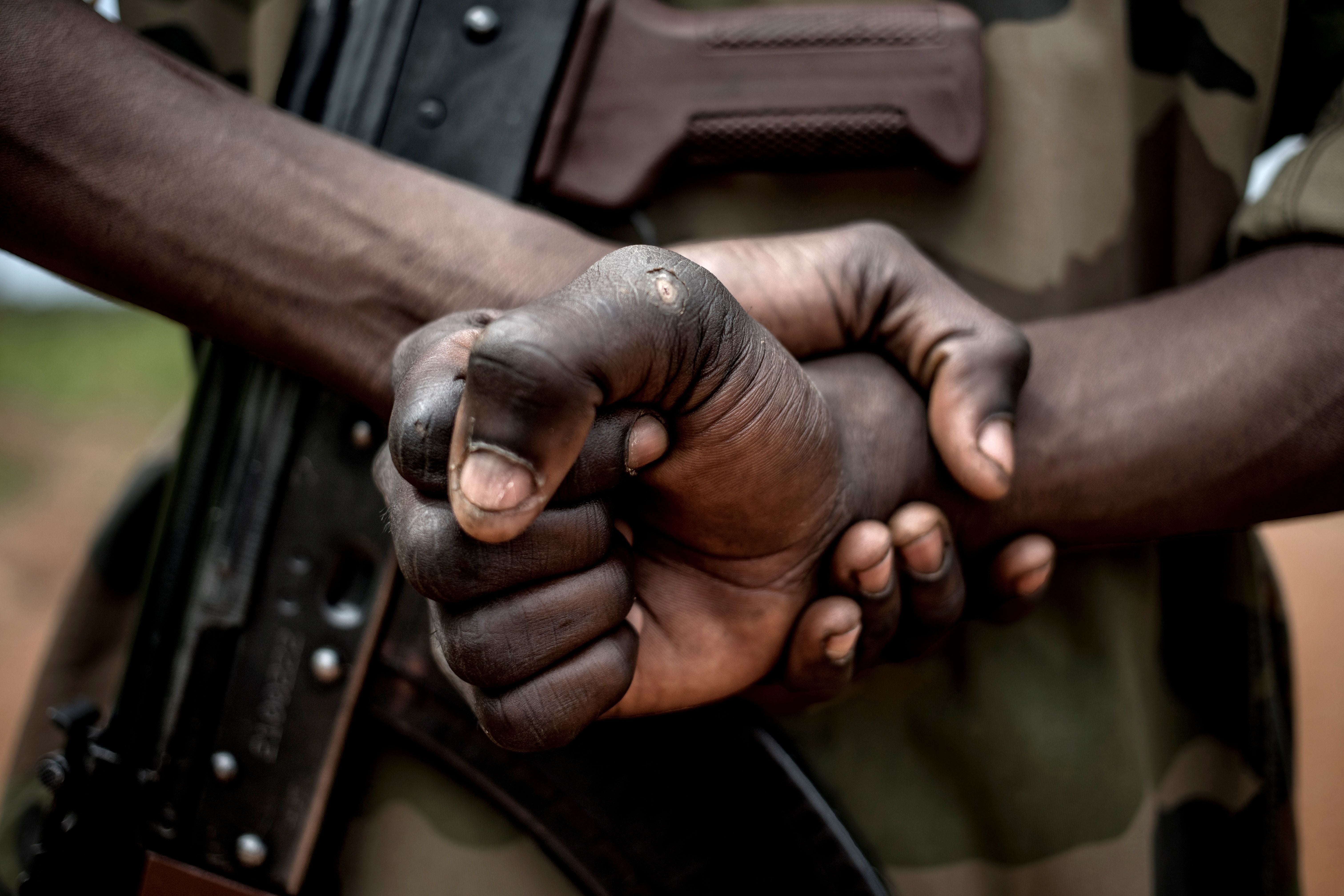
When Senegalese bricklayer Alassane Faye saw the news of Russia’s invasion of Ukraine on TV, he immediately wanted to do something to help.
“I can’t stand injustice,” said the 45-year-old from Pout, a town just outside of Senegal’s capital. “I don’t like to see people suffer.”
Faye found the phone number for the Ukrainian embassy in Dakar and called to say he wanted to fight. The embassy pointed him towards an online enrolment form, but then the Senegalese government demanded an end to all recruiting. By that point, at the start of March, 35 others in the country had enlisted.
And it’s not just Senegal. Across Africa, many civilians have expressed their willingness to fight in Ukraine’s international foreign legion against Russian forces. While it is unlikely most will make it due to the cost of travelling, the need for combat experience and bans from their governments, the level of interest has taken many analysts and officials by surprise.
The Ukrainian embassies in South Africa and Nigeria alone say they have received hundreds of requests – made over the phone, email or in person – to join the war.
In an interview, Ukraine’s ambassador in South Africa said her embassy was inundated with messages when the foreign legion was created at the behest of President Volodymyr Zelensky at the end of February – three days after the invasion started.
The embassy in Kenya also says it has received requests, and The Independent spoke to people from Uganda and Burundi – countries without Ukrainian embassies – who would also like to enlist but do not know how.
Damien Magrou, a spokesperson for the foreign legion, confirmed there are “some legionnaires” from Africa, but would not comment on numbers or nationalities.
Last month, a military official said more than 20,000 people from at least 50 nations had joined.
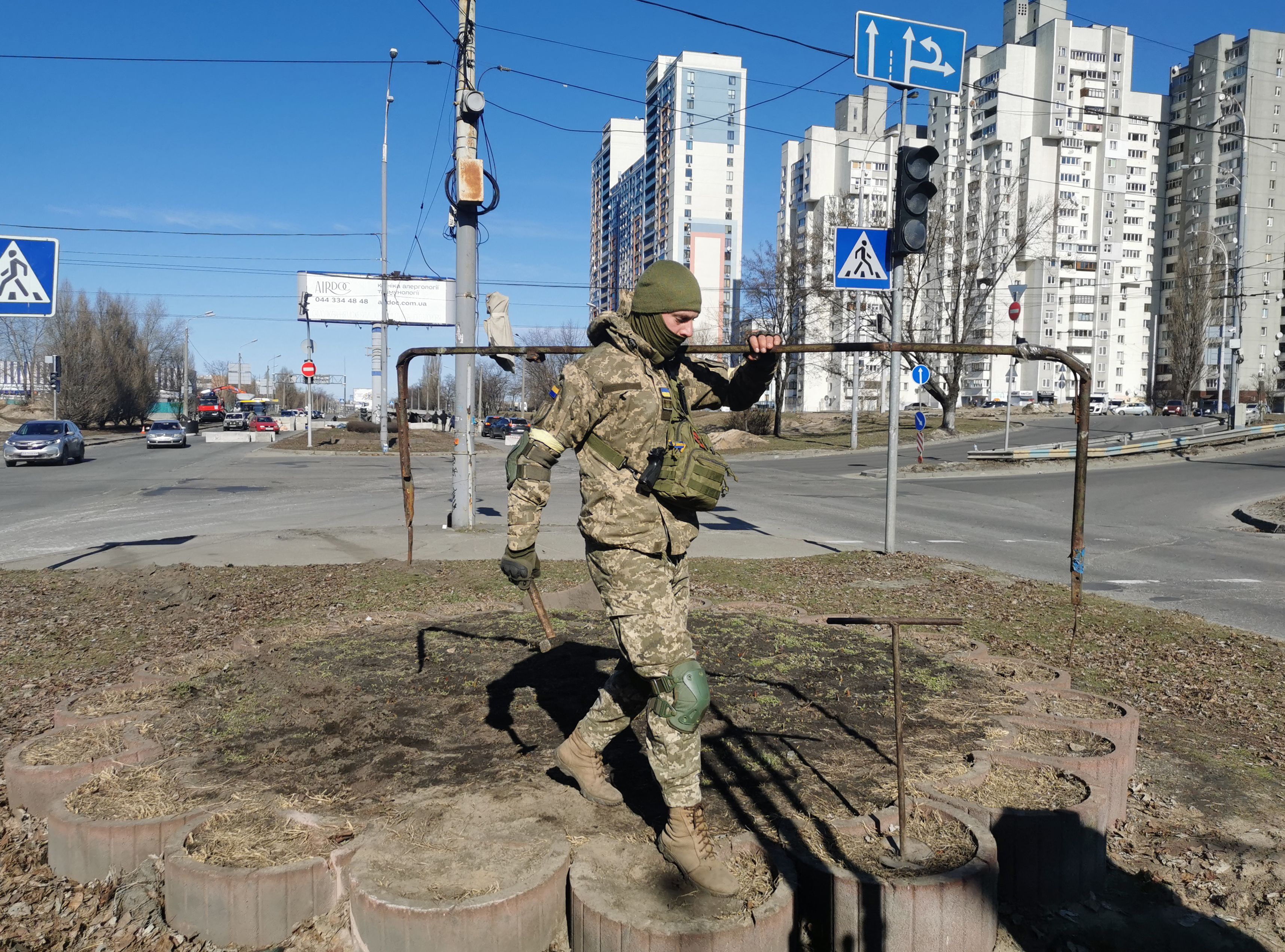
Of seven would-be fighters The Independent interviewed, most said that helping Ukrainians was their main motivation. But another factor for many was a desire to migrate to Europe.
Ukraine is currently offering visa-free entry for foreign nationals willing to fight, a rarity for citizens of African countries whose passports often rank among the least powerful in the world.
What’s more, many Africans who do not have passports migrate to Europe through irregular channels – embarking on long and dangerous journeys over land and sea, with the threat of violence, discrimination and detention along the way.
“If you think of who would be volunteering, it’s going to be young, fit men, and they may see this as a ticket out of Africa and a way to get into Europe and presumably stay there,” said Steven Gruzd, head of African governance and diplomacy at the South African Institute of International Affairs, a think tank.
Ibrahim Nyei, a Liberia-based fellow with the Centre for Democracy and Development – a human rights group – said many of those “bringing themselves forward to go to Ukraine” have likely made previous attempts to travel to Europe by irregular means.
Mr Faye, from Senegal, was arrested in 2005 after attempting to migrate to Spain on a fishing boat. He said a friend who owed him money invited him on the journey, offering to pay his fee, and he and two other friends boarded the pirogue in the village of Dièle-Mbam. But before the boat could take off, police arrived and arrested them.
Now a father-of-six, and currently two months behind on his rent, he said that while he does not want to “take advantage” of the war, part of his desire to fight in Ukraine is the possibility of looking for work there afterwards.
In a similar vein, Fredrick Okot, a 27-year-old in Uganda, says he would like “to go to Ukraine to help provide humanitarian assistance, fight and save lives”.
He says he tried to look for the nearest embassy that could help, searched online for information and asked a friend who works for the foreign ministry how he might get in touch with the legion.
“I am willing to fight for my brothers in Ukraine,” he said in a WhatsApp message, referring to Russian forces as “terrorist”.
But when pressed on why he was willing to risk his life in a foreign war, he said he was partly motivated by the opportunity to leave the east African nation. He has a bachelor’s degree in social work and social administration but has been unable to find work for two years.
“I do want to leave Uganda, I looked for jobs but I have failed to get one in my own country,” he said. “I find myself a dependant, not productive.”
Mr Okot said that if he went to Ukraine he would try to look for work there – though eventually he hopes to make it to the UK.
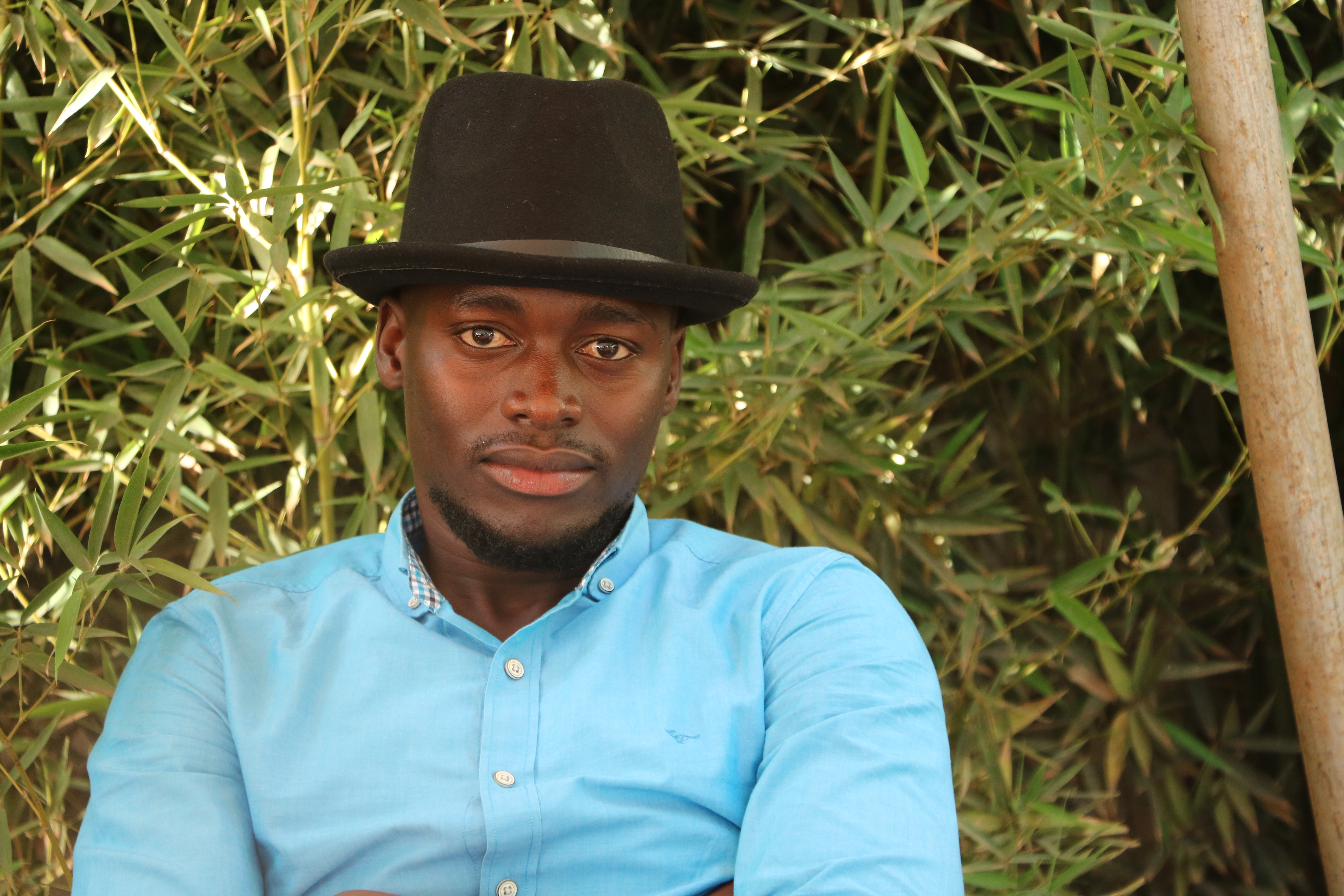
Analysts say there has been more news coverage of the European war than African conflicts like those in Ethiopia, Cameroon or Mali. That could be a reason why many Africans are willing to fight in Ukraine but have not attempted to take part in conflicts closer to home.
“The level of international coverage that the war in Ukraine has received, the war in Cameroon hasn’t received,” said Mr Nyei. “Not many people in neighbouring Nigeria can know as much about the war in Cameroon as they know about the war in Ukraine.”
For casual observers, most of the conflicts within Africa are less clear cut than Russia’s invasion of Ukraine. There may not be one obvious aggressor, and most wars are internal rather than interstate conflicts.
The would-be recruits also cited the apparent ease of joining Ukraine’s international legion.
Mr Okot said that if he wanted to participate in a conflict closer to home, such as in the Democratic Republic of the Congo or South Sudan, he believed he would have to join the Ugandan army rather than a foreign battalion.
Senegalese Mr Faye said he was “willing to help anyone who is in need” – whether in Ukraine, Mali, or the separatist Casamance region in southern Senegal.
“It’s just that the opportunity I had to go and help the Ukrainians didn’t necessarily present itself for the other regions or countries,” he said. “I don’t have any information about how to engage with the Senegalese or Malian army. It was easy to get in touch with the Ukrainian embassy.”
But Ukraine cannot cover expenses such as plane tickets for would-be fighters, and combat experience is now a requirement to join the legion – as is fluency in English or Ukrainian.
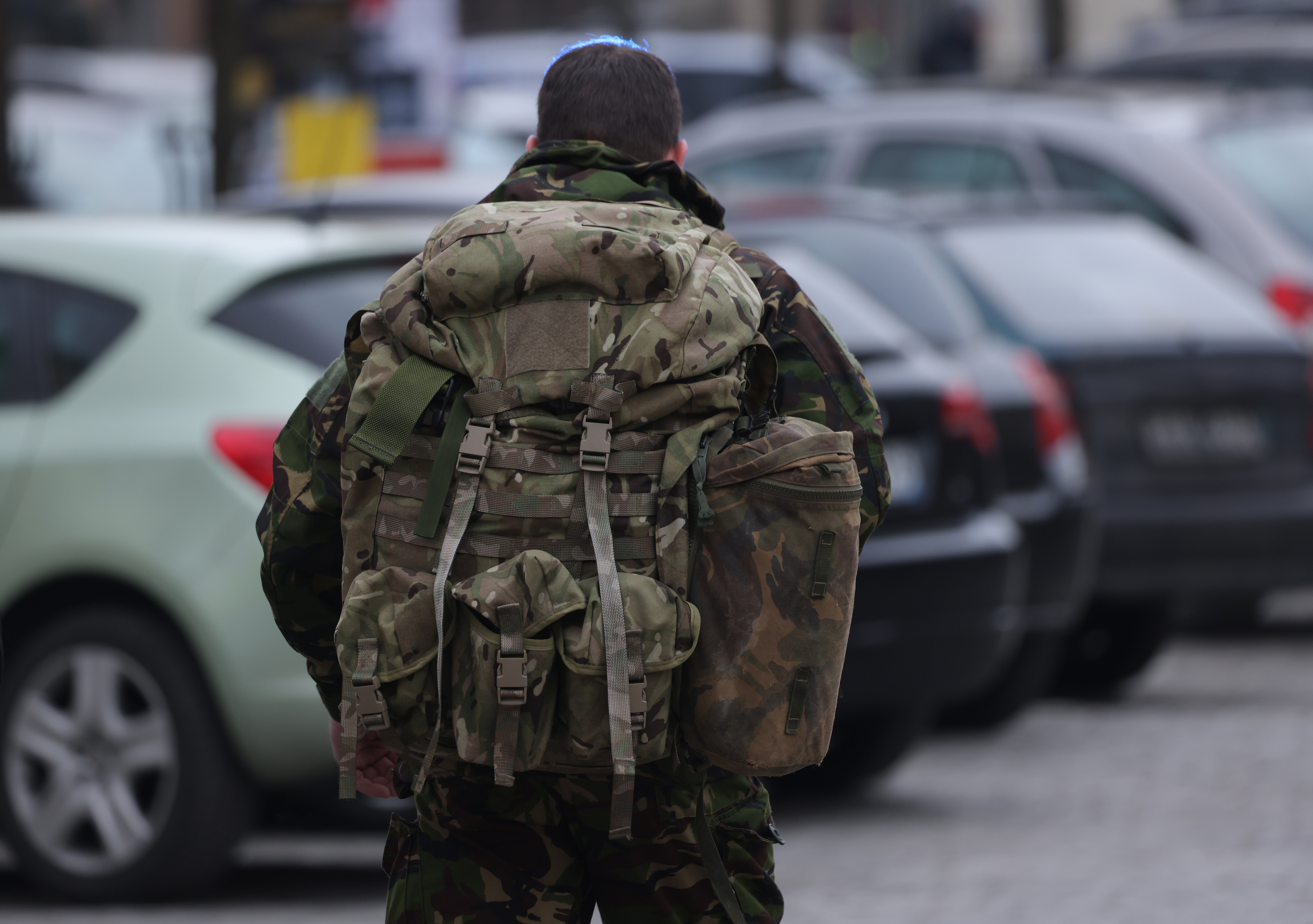
Mr Nyei said that some of those who want to fight are likely unemployed former combatants previously hired by British or American private securityfirms to fight in Afghanistan or Iraq. He said most of the contractors hired for those two wars had previously fought in the civil wars in Sierra Leone, Liberia or Côte d’Ivoire. But many would-be recruits likely don’t meet the criteria.
A spokesperson for Ukraine’s embassy in Kenya said that after receiving requests about the legion via Facebook and by phone, interest faded away when staff explained the financial and military requirements.
For Allan Kitonsa Saava, the chance to fight in Ukraine is about more than just a ticket to Europe or a paycheque.
A 35-year-old Ugandan political refugee living in Zimbabwe, he said he wants to fight Russia because “Putin is siding with autocrats, barbarians like [Ugandan president Yoweri] Museveni against the global cause of democracy.”
“When you want to solve a problem it’s best to deal with the root cause,” he said, noting that Russia manufactures weapons that are exported abroad. “So cripple Putin to weaken his proxies.”
Mr Kitonsa went online to try to enlist through the Ukrainian embassy in South Africa, which is also responsible for Zimbabwe. But he “could not get through” the website, he said.

The embassy is still waiting for guidance from Zimbabwe on whether or not it has permission to recruit there, according to Liubov Abravitova, Ukraine’s ambassador to South Africa, Mozambique and Botswana.
“As soon as the president of Ukraine announced the establishment of this legion, we started to receive calls and emails and people started to write to us on the Facebook page and on Twitter,” she told The Independent in an interview.
Her embassy, which is responsible for 10 countries in southern Africa, asked each state’s foreign affairs ministry for legal guidance on the recruitment of combatants.
Zimbabwe and six other countries have not responded, while Namibia and Botswana said they do not allow it. In South Africa, she was told, volunteer fighters must apply to the National Conventional Arms Control Committee and the minister of defence and veterans before they are allowed to join the Ukrainian armed forces.
“As we know, the bureaucracy usually takes a lot [of time], so I think it would not be really efficient and quick to get those specialists,” Ms Abravitova said, estimating that it would take at least a month to secure approvals.
She did not believe anyone had begun the application process.
South Africa, which was a major supplier of personnel for private military companies in Iraq, passed a law in 2007 prohibiting mercenary activity and regulating “the provision of assistance or services of a military nature and humanitarian aid in armed conflicts”.
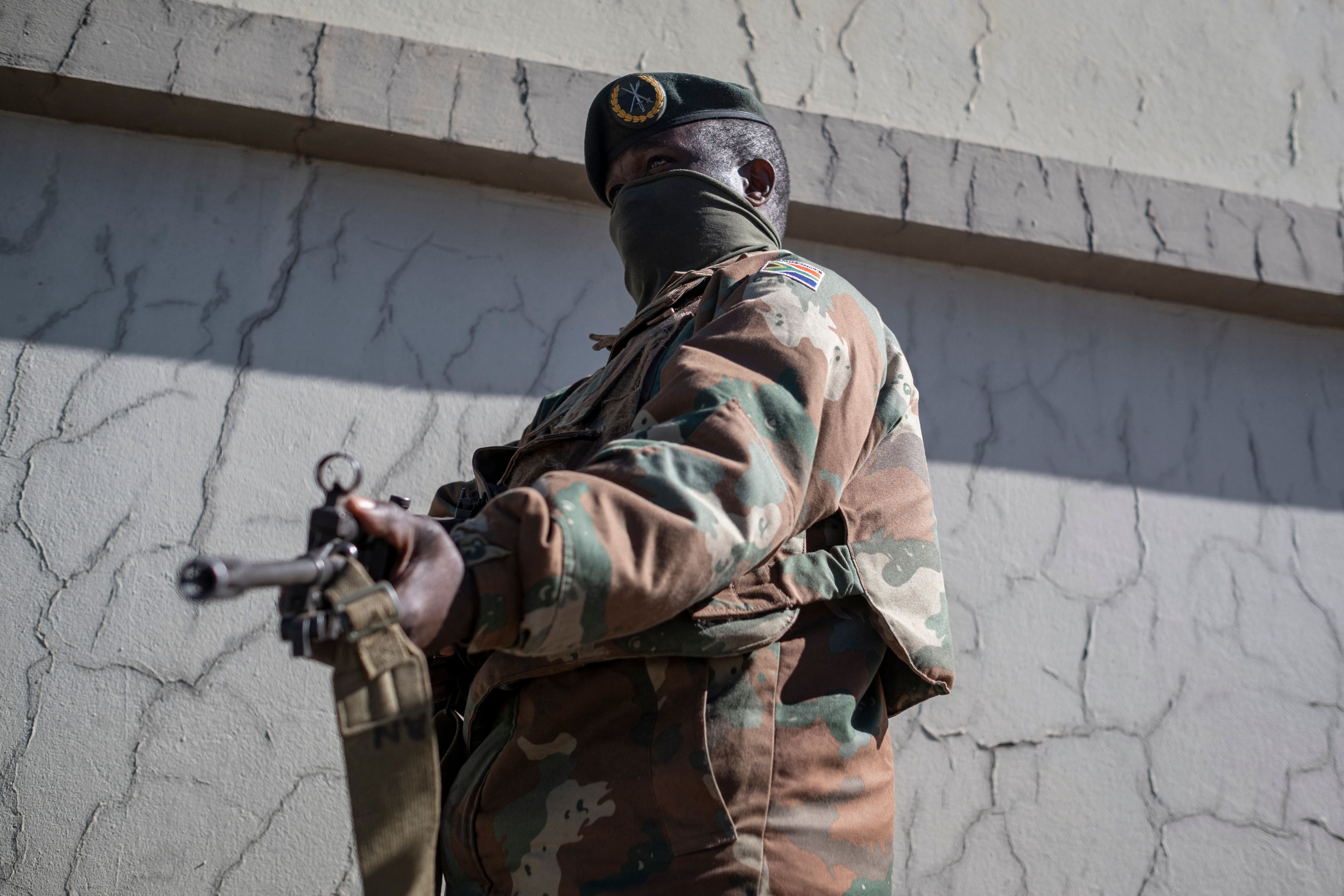
Other African governments have been even more direct in preventing their citizens from heeding Ukraine’s call to arms.
Soltys Bohdan, a spokesman for Ukraine’s embassy in Nigeria, said the government there had instructed the embassy not to recruit fighters and to turn away any Nigerians who got in touch.
In Algeria, the government ordered the Ukrainian embassy to delete a Facebook post calling for recruits, deeming it a “flagrant violation of the Vienna Convention”, according to local reports.
Senegal’s foreign ministry said in a statement that it had summoned the Ukrainian ambassador and “invited” the embassy to retract its call for fighters and immediately stop all enlistment activity. It said “the recruitment of foreign volunteers, mercenaries or combatants on Senegalese territory is illegal” and also referred to the Vienna Convention.
The crackdown on recruitment is a notable departure from the responses of countries such as Canada, the UK and the US, which have not prevented citizens from joining Ukraine’s international legion. It might stem from concerns over what will happen when fighters return home from the war.
“It’s to avoid the Libyan situation … where in some cases young Africans went out to fight as mercenaries [during the civil war that ousted Muammar Gaddafi] and they returned with violent orientations and some established armed movements in places like Mali, Nigeria and Chad,” said Mr Nyei of the Centre for Democracy and Development.
Governments may also want to avoid upsetting relations with Russia in the long term.
“I think there’s probably a bit of concern on the optics,” said Mr Gruzd of the South African Institute of International Affairs.
South Africa, Nigeria and Senegal were among the 58 countries that abstained from a 7 April vote to suspend Russia from the UN’s Human Rights Council. Algeria and Zimbabwe joined 22 others in voting against the resolution, which was ultimately successful.
The South African, Nigerian, Senegalese and Algerian governments did not respond to requests by The Independent for comment, or could not be reached.
As for Mr Kitonsa, who is still waiting to learn if Zimbabwe will permit him to join Ukraine’s legion, he said he will keep trying.
“If I get the opportunity I will go.”






Join our commenting forum
Join thought-provoking conversations, follow other Independent readers and see their replies
Comments